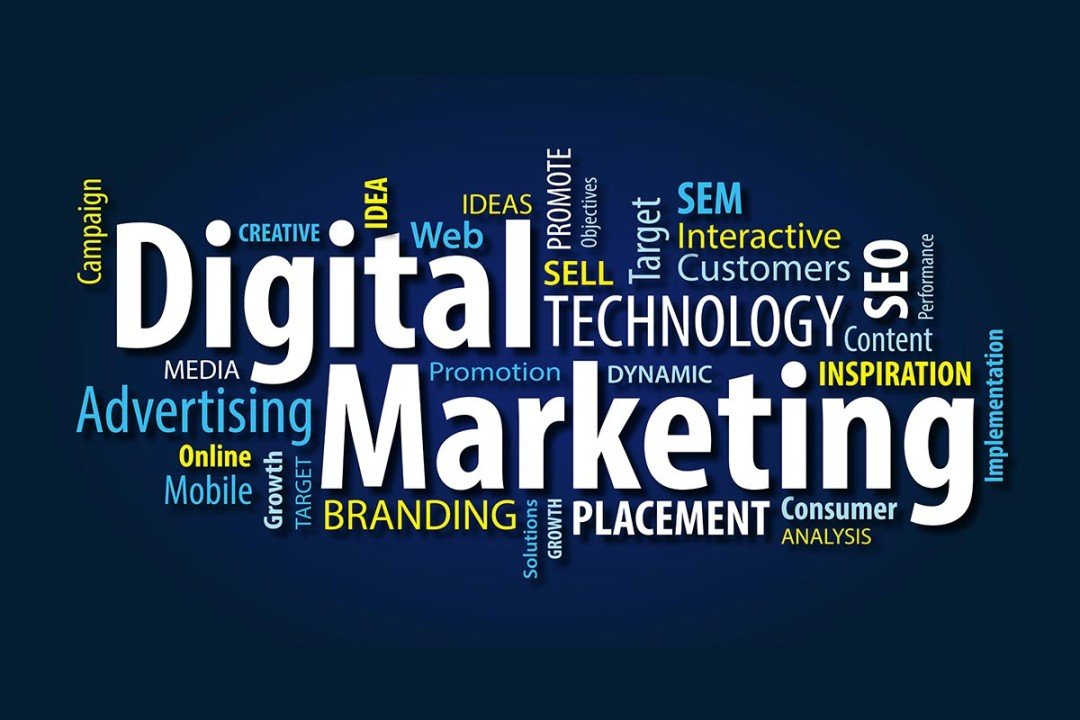Digital marketing is a dynamic and ever-evolving field that plays a crucial role in today's business landscape. For beginners, understanding the basics and mastering key strategies can significantly impact your ability to attract and engage customers online. This guide aims to provide a comprehensive overview of digital marketing, covering essential topics and actionable tips to help you get started.

What is Digital Marketing?
Digital marketing encompasses all marketing efforts that use an electronic device or the internet. Businesses leverage digital channels such as search engines, social media, email, and websites to connect with current and prospective customers. Unlike traditional marketing, digital marketing allows for real-time data analysis and targeted advertising, making it a powerful tool for businesses of all sizes.
Key Components of Digital Marketing
-
Search Engine Optimization (SEO)
SEO is the process of optimizing your website to rank higher in search engine results pages (SERPs). By improving your site's visibility, you can attract more organic traffic. Key SEO practices include keyword research, on-page optimization, and building high-quality backlinks.
- Keyword Research: Identifying the terms and phrases your target audience uses when searching for products or services similar to yours.
- On-Page Optimization: Enhancing individual web pages to rank higher and earn more relevant traffic. This includes optimizing title tags, meta descriptions, headers, and content.
- Backlinks: Acquiring links from other reputable websites to increase your site's authority and search engine ranking.
-
Content Marketing
Content marketing involves creating and distributing valuable, relevant, and consistent content to attract and retain a clearly defined audience. The goal is to drive profitable customer action by providing useful information that addresses the needs and interests of your target audience.
- Blog Posts: Regularly publishing articles on your website to provide information, answer questions, and engage readers.
- Infographics: Using visual content to present information in an easily digestible format.
- Videos: Creating engaging video content to capture the attention of your audience and convey your message effectively.
-
Social Media Marketing
Social media marketing involves using social media platforms to promote your brand, engage with your audience, and drive traffic to your website. Popular platforms include Facebook, Twitter, Instagram, LinkedIn, and Pinterest.
- Content Creation: Developing engaging posts, images, and videos that resonate with your audience.
- Community Management: Interacting with followers, responding to comments, and building relationships with your audience.
- Advertising: Running targeted ads to reach a broader audience and drive specific actions, such as website visits or product purchases.
-
Email Marketing
Email marketing is a highly effective digital marketing strategy that involves sending emails to prospects and customers. It can be used to promote products, share news, and nurture relationships.
- Newsletter Campaigns: Sending regular updates and valuable content to your subscribers.
- Automated Emails: Setting up email sequences to nurture leads and guide them through the sales funnel.
- Personalization: Tailoring email content to individual subscribers based on their preferences and behaviors.
-
Pay-Per-Click (PPC) Advertising
PPC advertising is a model where advertisers pay a fee each time their ad is clicked. It’s a way to buy visits to your site rather than earning them organically. Google Ads is the most popular PPC platform, but social media platforms also offer PPC options.
- Keyword Selection: Choosing the right keywords to bid on to ensure your ads appear to the right audience.
- Ad Copy: Writing compelling ad copy that encourages users to click on your ads.
- Landing Pages: Creating optimized landing pages that provide a seamless user experience and encourage conversions.
Getting Started with Digital Marketing
-
Define Your Goals
Before diving into digital marketing, it's essential to define your goals. Are you looking to increase website traffic, generate leads, boost sales, or improve brand awareness? Clear goals will guide your strategy and help you measure success.
-
Understand Your Audience
Knowing your audience is crucial for effective digital marketing. Conduct market research to understand your target audience's demographics, preferences, and online behaviors. This information will help you create content and campaigns that resonate with them.
-
Build a Strong Online Presence
Your website is the foundation of your digital marketing efforts. Ensure it is well-designed, mobile-friendly, and optimized for search engines. Additionally, establish a presence on relevant social media platforms and other digital channels where your audience spends time.
-
Create Valuable Content
Content is at the heart of digital marketing. Focus on creating high-quality, valuable content that addresses your audience's needs and interests. This could include blog posts, videos, infographics, ebooks, and more.
-
Leverage Analytics
Use analytics tools to track and measure the performance of your digital marketing efforts. Platforms like Google Analytics, social media insights, and email marketing software provide valuable data that can inform your strategy and help you make data-driven decisions.
-
Stay Updated
Digital marketing trends and best practices are constantly evolving. Stay informed by following industry blogs, attending webinars, and participating in online communities. Continuous learning will help you stay ahead of the competition and adapt to changes in the digital landscape.
Conclusion
Mastering digital marketing as a beginner can seem daunting, but with the right approach and resources, you can achieve significant success. By understanding the key components of digital marketing, defining your goals, knowing your audience, and continuously improving your strategies, you'll be well on your way to becoming a digital marketing pro. Embrace the journey, stay curious, and enjoy the process of connecting with your audience in the digital world.


You must be logged in to post a comment.